Ovarian Hyperstimulation Syndrome
Infertility
The medical condition called Ovarian Hyperstimulation Syndrome (OHSS) is getting more common with increasing inclination of prospective parents towards IVF. The medical facility such as IVF is no doubt a blessing for humankind but also has its own side effects. For instance, stimulating egg growth with the help of allopathy medicine can go wrong and lead to OHSS which can cause severe sickness or even prove fatal. This article is written to increase awareness of OHSS and its related treatment.
To know the symptoms and causes of OHSS click
The Basics of Ovarian Hyperstimulation Syndrome One Should Know:
If any of you reading this are taking a treatment for infertility, the first thing you should know is the different levels of OHSS to determine where exactly you stand. It is classified into four major categories including mild, moderate, severe, and critical.
Want a PCOS Diet That Actually Supports Pregnancy? Get the exact meal plan in Garbha Sankalp.
Join Garbha Sankalp Workshop Now
Mild Ovarian Hyperstimulation Syndrome:
- Class 1 – Uneasiness and discomfort in the abdominal area.
- Class 2 – Both the above symptoms with vomiting, nausea, diarrhea, and ovarian enlargement of 5-12 cm.
Moderate Ovarian Hyperstimulation Syndrome:
- Class 3 – All the symptoms of Class 1 & 2 with ultrasonographic evidence of ascites (abnormal accumulation of fluid in the abdominal).
Severe Ovarian Hyperstimulation Syndrome:
- Class 4 – All the symptoms of Class 1, 2 & 3 with breathing difficulties and/or hydrothorax (fluid accumulation in the pleural cavity).
Critical Ovarian Hyperstimulation Syndrome:
- Class 5 – All of the above symptoms with increased blood viscosity due to hemoconcentration, diminished renal function, change in blood volume and coagulation abnormalities.
The side effects can be increased ovary size due to over stimulation. The patient and medical practitioner must be aware of this fact before deciding on any infertility treatment. One of the well-known infertility treatment is gonadotropin therapy (where HCG injections are given to the prospective woman to increase her egg production) that many couples opt for without any prior knowledge of its consequences. It sometimes leads to OHSS after a brief period of oocyte retrieval.
To put it simply, Ovarian Hyperstimulation syndrome (OHSS) is a medical condition of ovarian enlargement due to several ovarian cysts.
Ovarian Hyperstimulation Syndrome and Fertility Treatment/ IVF
Although HCG has been blamed for causing this condition, the truth is that the whole concept of disease inception is still not fully explored. The Gonadotropin hormone is naturally produced during pregnancy. On the other hand, when it is induced into the body artificially to trigger egg release from the mature follicle, ovarian blood vessels react weirdly to it. They start with leaking fluids that leads to ovary swelling and huge movement in the abdomen.
It has seen that OHSS normally occurs after few weeks of injecting HCG into the body. The worst situation is if you get pregnant during this period then OHSS interferes with the natural production of HCG by the body in response to the pregnancy. Fertility treatment that includes oral doses of medication such as clomiphene is less prone to causing OHSS than taking HCG injections. There are other factors too that increases your chances of getting OHSS.
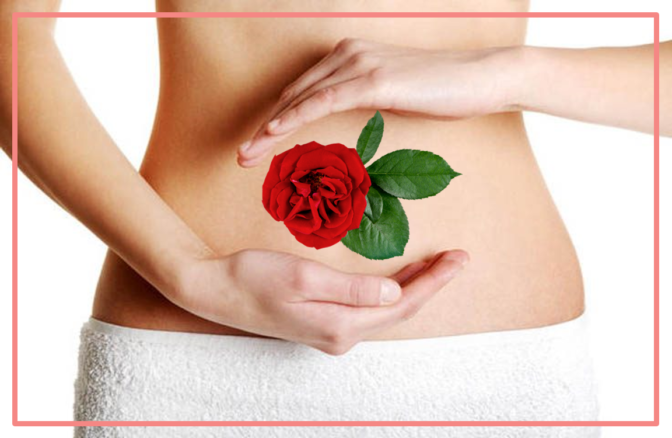
4 Factors That Increases The Risk Of Ovarian Hyperstimulation Syndrome
- Age – If you are under 30 and considering taking HCG injection then be aware of OHSS risks.
- High Estrogen level – Patients with high level of estrogen before taking HCG injection are more likely to be affected by OHSS.
- Low weight – Low body weight is again one of the primary causes of OHSS.Many women work towards a slimmer look but they are more at
- PCOS – Polycystic ovary syndrome or PCOS is a reproductive disorder associated with irregular menstruation cycle. Patients with PCOS are more prone to getting affected by OHSS.
These are some of the chief causes. However, there are instances where a woman with none of the above risk factor encountered Ovarian Hyperstimulation Syndrome after HCG treatment.
So, what then is the solution? How does one keep OHSS at bay? Diet is one of them. Let’s see how.
Diet To Minimize Ovarian Hyperstimulation Syndrome
If you are undergoing any fertility treatment that might lead to OHSS then you must redesign your diet accordingly. Include lots of high protein food and fluids in your daily diet along with an increased amount of salt.
Protein is a must diet content for those who are undergoing fertility treatment. Protein substrates albumin production that reduces ascites. Lack of protein leads to reduced albumin production which is a big cause of Ovarian Hyperstimulation Syndrome. You must include meat or pulses in your daily diet.
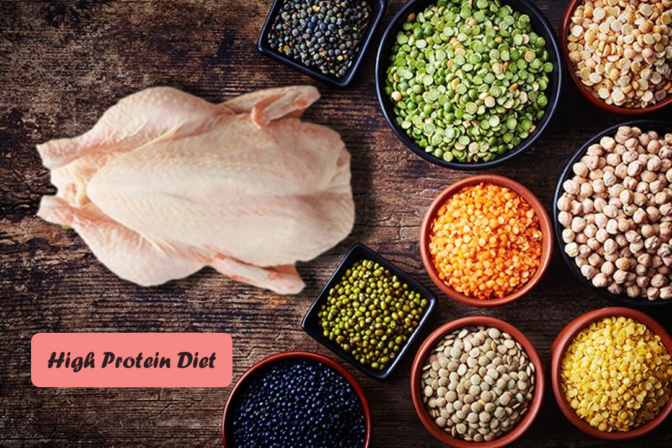
Coconut water is the best thing that you must have to minimize OHSS. It provides the adequate amount of sodium and potassium that renal perfusion requires. You can also drink energy beverages whenever you feel your lips or mouth is going dry. Doing this will help you from getting concentrated urine or dry mucous membrane.
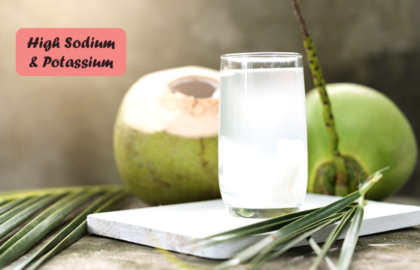
Extra salty food is good for getting the adequate amount of sodium and potassium that your body needs. Low sodium and potassium can lead to tiredness and low appetite that increase the chances of OHSS.
You can also take a small amount of aspirin to control blood clotting in severe cases but only if your doctor prescribes it. Pain medication can be also taken to control pain but again only as per doctor’s prescription.
Why Ovarian Hyperstimulation Syndrome Needs More Attention?
Ovarian Hyperstimulation Syndrome can be controlled with proper diet and medical care and only 5% of IVF cases shows OHSS syndrome in the world. There is no need to panic thinking about this medical condition but one must need to be aware of the consequences of IVF treatment. Moreover, if you lead a healthy lifestyle with proper diet then it is possible that you conceive naturally and will not need any fertility treatment. However, if you face this unfortunate and painful condition you must consult a dietitian along with medical care. There are specialized fertility nutritionists who are experts in charting a diet for OHSS and IVF patients. They could help you solve the problem.


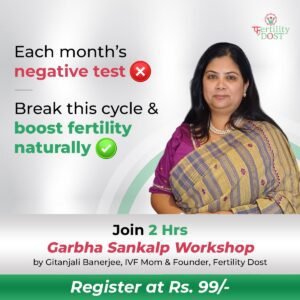

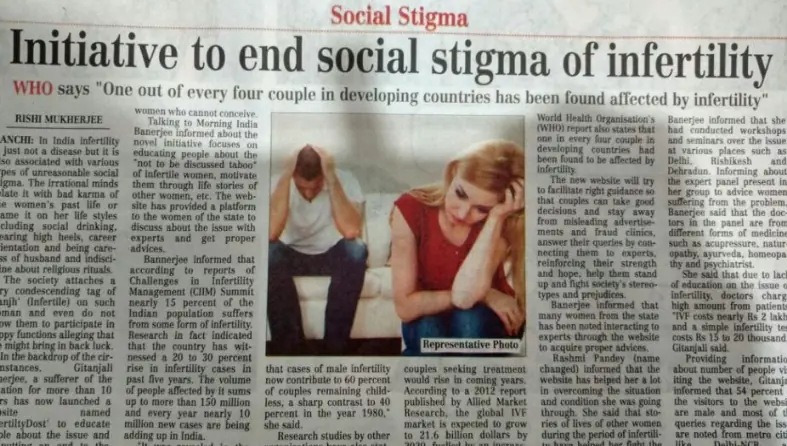
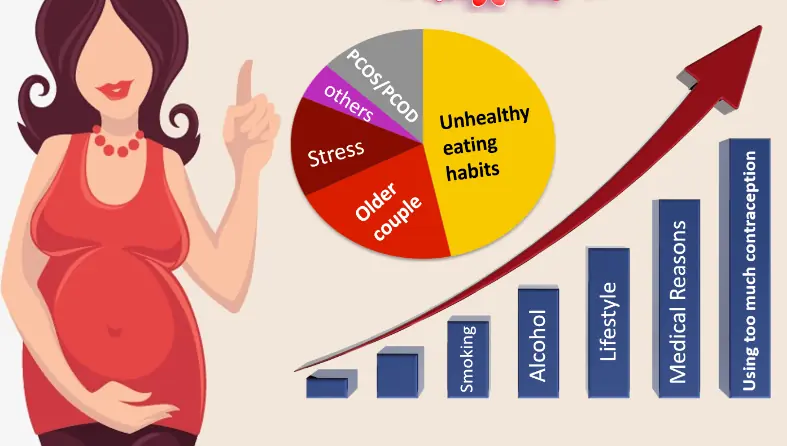

Your Comment Is Valuable For Us
Thanks For Your Feedback.